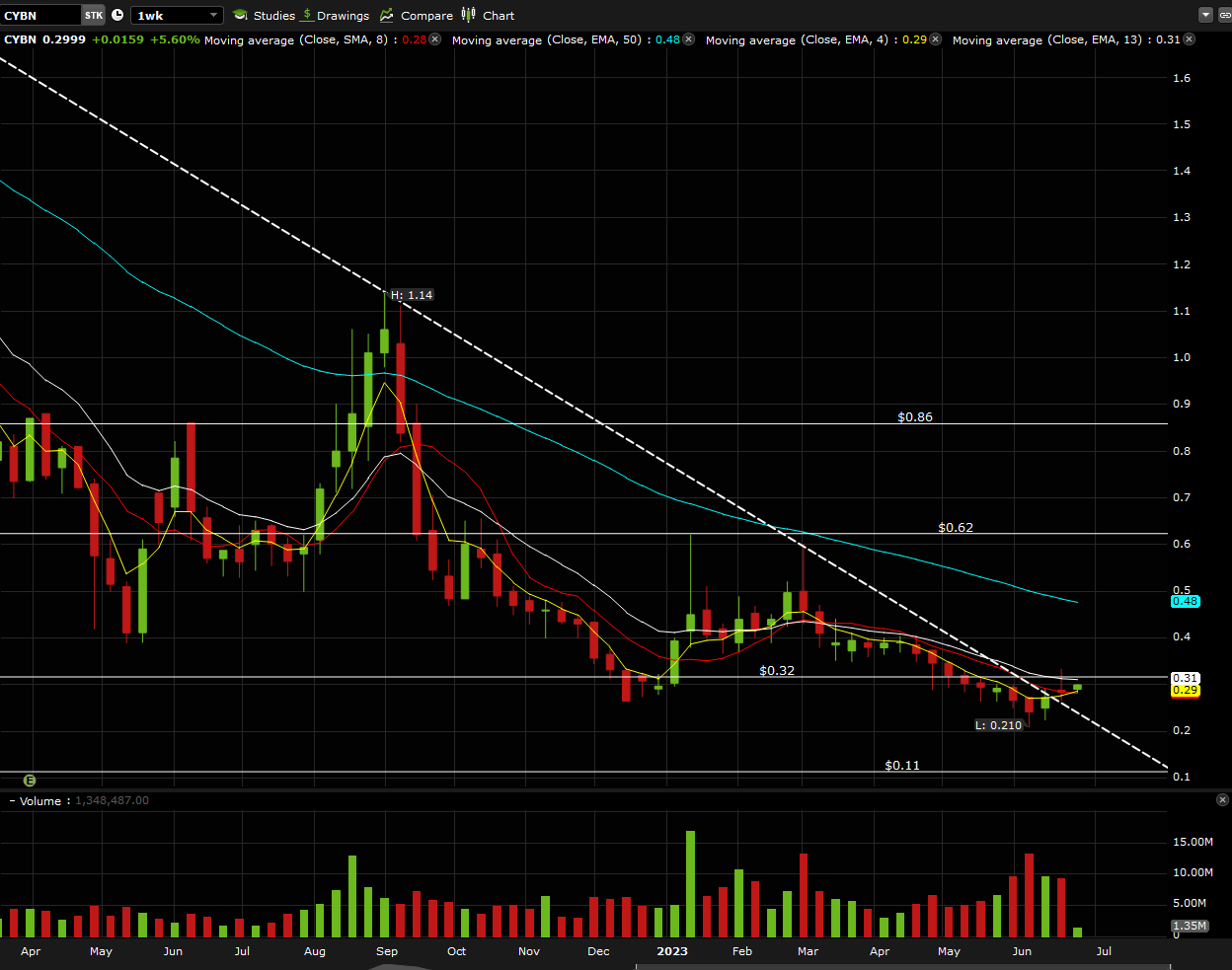
Top 3 Things to Consider When Looking for a Stock Trading Course
From pop culture to the guy next door, it seems like trading stocks can be a successful venture that you may be interested in trying out, but you shouldn’t just jump into stock trading, at least, if you want to be successful. The best option is to look for a stock trading course that can support your needs and desired outcomes.
However, just like picking the perfect stock to invest in seems overwhelming, the number of online courses you can review may have your head spinning. To help you narrow down your choices and find the best option for a trading course, this post outlines the top three things you need to consider before you enroll.

1. What Does the Course Include?
An effective online class about stock trading should cover a range of fundamental topics to provide you with a comprehensive understanding. Here are some key areas that should be addressed:
- Introduction to stock markets:
- Explanation of stock exchanges and how they function
- Understanding stock market participants (investors, traders, brokers)
- Investment vs. trading:
- Differentiating between long-term investing and short-term trading.
- Identifying your personal investment goals and risk tolerance
- Stock market basics:
- Stock terminology (e.g., stocks, bonds, ETFs, dividends)
- Types of stocks (common vs. preferred)
- Market analysis:
- Fundamental analysis (evaluating a company’s financial health)
- Technical analysis (chart patterns, indicators, and trends)
- Risk management:
- Strategies to mitigate risks, including diversification.
- Setting stop-loss orders and risk-reward ratios
- Trading strategies:
- Day trading, swing trading, and long-term investing strategies
- Building a trading plan based on your goals and risk tolerance
- Trading platforms and tools:
- Overview of online trading platforms and how to use them
- Accessing real-time market data and news
- Order types:
- Understanding market orders, limit orders, and stop orders
- Placing and managing orders effectively
- Psychology of trading:
- Emotions and discipline in trading
- Handling losses and avoiding impulsive decisions
- Regulations and tax considerations:
- Understanding the regulatory environment for trading
- Tax implications of trading and investment gains
- Portfolio management:
- Building and maintaining a diversified portfolio
- Asset allocation and rebalancing
- Risk assessment:
- Identifying and assessing different types of risk (market, credit, liquidity)
- Implementing strategies to manage risk.
- Case studies and practical examples:
- Analyzing real-world trading scenarios and success stories
- Learning from both successes and mistakes
- Continuous learning:
- Encouraging ongoing education and keeping up with market trends
- Utilizing additional resources, such as books, news sources, and forums
A well-rounded stock trading course should not only provide theoretical knowledge but also offer practical exercises and opportunities for you to apply what you learned in simulated trading environments. It should emphasize the importance of discipline, risk management, and continuous improvement in the world of stock trading.
2. What Can I Get from the Course?
Although you can check the list of all the required information a course should offer, you also want to understand what kinds of intangibles you can get from a course—the kinds of things that marry the information into practical application.
You want to be sure that the course can offer you more than you can get from a book or reading online. So look for a stock trading course that can provide you with several valuable outcomes:
- Knowledge and understanding: You want to gain a solid understanding of how the stock market works, various trading strategies, and the terminology used in the world of trading. You need more than just rote memorization of key terms.
- Technical and analytical skills: You need to learn technical analysis, which involves reading charts, using indicators, and making informed trading decisions based on data.
- Risk management: Learning how to manage risks effectively is a crucial part of trading. A course should cover risk assessment and strategies to protect your investments.
- Trading strategies: You’ll be exposed to different trading strategies, and it’s not enough to understand what they are. You need to understand how to choose one that aligns with your goals and risk tolerance.
- Practical experience: Many courses offer simulated trading environments, enabling you to practice trading without risking real money. This hands-on experience is invaluable for beginners.
- Discipline and emotional control: Trading courses often emphasize the importance of discipline and emotional control when dealing with the ups and downs of the market.
- Market awareness: Find a course that encourages market awareness. Then you’ll become more accustomed to looking for market trends, news, and events that can impact stock prices and trading decisions before you’re ready to trade.
- Networking: Some courses provide opportunities to connect with other traders and industry professionals, creating a network for sharing insights and experiences.
- Financial literacy: Beyond trading, you’ll enhance your overall financial literacy, which can benefit your personal financial planning and decision-making.
- Confidence: With knowledge and practice, you’ll gain confidence in your ability to make informed trading decisions.
It’s important to note that while a stock trading course can provide valuable education, success in trading also depends on your commitment to continuous learning, discipline, and real-world experience. Many successful traders continue to learn and adapt their strategies throughout their careers. So continuing to learn and finding support is crucial to your success.

3. Does the Course Support My Success with Stock Trading?
To be a successful stock trader, you’ll need various types of support to navigate the challenges of the fast-paced and high-risk environment. An online course can’t offer all the support you need, such as money, to be successful, but you can find a course that offers as many of these key forms of support as possible:
- Education: Start with a solid foundation by taking a course on stock trading. Continuously educate yourself on market trends, strategies, and new trading technologies.
- Mentorship: Having an experienced mentor can significantly accelerate your learning curve. A mentor can provide guidance, share practical insights, and help you avoid common pitfalls.
- Trading capital: You’ll need sufficient capital to start day trading. Ensure you have access to funds you can afford to risk. Of course, no online course helps you out with capital, but it is an absolute necessity to begin trading.
- Trading platform: Choose a reliable and user-friendly trading platform that suits your needs. Make sure it offers real-time data, charting tools, and access to the markets you want to trade.
- Risk-management tools: Utilize risk-management tools such as stop-loss orders and limit orders to protect your capital from significant losses.
- Technology and equipment: A fast and stable internet connection, a powerful computer, and multiple monitors can be essential for executing trades swiftly and efficiently.
- News sources: Access to real-time news and financial information is crucial for day traders to stay informed about market-moving events.
- Supportive community: Joining or participating in trading communities, forums, or social media groups can provide a sense of community, as well as opportunities to share knowledge and experiences.
- Psychological support: Day trading can be emotionally taxing. Ensure you have emotional support from friends or family to help you manage stress and maintain discipline.
- Backup plan: Have a backup plan in case your day trading endeavors don’t go as expected. It’s important to have financial stability and alternative sources of income.
- Compliance and tax advisors: Seek advice from professionals who can help you navigate tax implications and ensure you’re in compliance with trading regulations.
- Record keeping: Maintain thorough records of your trades for analysis and tax purposes.
Remember that day trading involves a significant level of risk, and many day traders experience losses. It’s essential to approach it with a well-thought-out trading plan, discipline, and support systems to increase your chances of success and manage potential setbacks effectively. Having professionals to educate, support, and guide you makes it even easier to begin. So look for a comprehensive stock trading course, like the masterclass available from Spartan Trading. The support you get upfront and the continuing education makes trading both an insightful and enjoyable experience.



